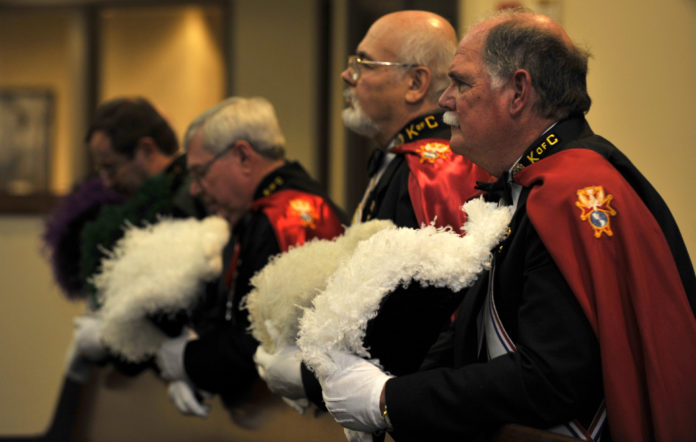

A recent half-million-dollar jury verdict was a far cry from the demand and damages a web developer lodged against the Knights of Columbus.
On Sept. 12, a federal jury in Denver returned a verdict finding the Knights breached a contract with List Interactive, a Colorado-based web developer doing business as UKnight, and awarded the latter $500,000. But the award is a fraction of the $100 million damages demand, and the jury found against UKnight on its trade secrets theft and business interference claims against the fraternal order.
Underscoring the two-and-a-half year litigation and the 12-day trial were UKnight’s allegations that the Knights inflated its membership numbers to keep its life insurance business afloat. UKnight, which developed a web platform for the order to use for the business, claimed the Knights broke off vendor relations and stole its trade secrets to keep its allegedly fraudulent membership practices under wraps. While UKnight used these allegations to argue its business-related claims, the jury did not have any fraud claims before it, and the Knights forcefully denied inflating membership numbers.
The Knights and its trial counsel are “very pleased” with the verdict, said Ed Gleason, a trial attorney representing the Knights who is a Colorado Springs-based partner at Lewis Roca Rothgerber Christie.
“Our position from the start is that this was a garden-variety breach of contract claim,” Gleason said. “In the end that’s how the jury saw it as well.”
At trial, the Knights disputed that UKnight had any trade secrets to begin with, and argued that whatever information UKnight claimed was a trade secret, the Knights never received, Gleason said.
UKnight’s counsel, G. Stephen Long and Blaine Bengtson of Jones & Keller in Denver, did not respond to a request for comment. It is unclear whether UKnight might raise any issues for appeal, and Gleason said as of Wednesday he and his team hadn’t yet heard of any post-trial motions from the other side.
The Knights of Columbus, a 501(c)(8) tax-exempt Catholic charity based in Connecticut, derive income from selling life insurance policies to its members, which it claims number 2 million. In the early 2010s, UKnight was developing an online platform to support the Knights’ life insurance business across its local councils. The web developer sued the Knights in January 2017 after the order failed to commit to making the company a dedicated vendor for its life insurance business. The company claimed the order reneged on an oral contract and stole the company’s system to use in-house so it could keep the alleged fraud a secret.
UKnight claimed the order agreed in September 2011 meetings that it would announce the company as its sole vendor for the life insurance business.
The two sides maintained a dialogue but the announcement never came. In August 2012, according to the plaintiffs, the Knights approved the modifications it wanted to see in the UKnight web platform before the they would announce its order-wide adoption. But the Knights still didn’t make that announcement or sign a written contract of the partnership in the months or years following, UKnight claimed.
The Knights later brought in an independent consultant to evaluate UKnight’s platform, and they would later argue the platform was inadequate, according to court documents.
UKnight alleged the consultant’s role, however, was to help the Knights replicate the platform themselves by facilitating the theft of the company’s trade secrets in meetings beginning in 2014. The Knights would later hire the independent consultant to be their director of e-business. The order also sent out a request for proposals to other web developers that UKnight said contained its platform’s proprietary design elements.
The relationship officially ended in January 2016. UKnight filed its complaint against the Knights in January 2017 carrying a host of allegations including fraud, breach of contract and racketeering, and it sought to invalidate the Knights’ tax-exempt status.
The plaintiffs claimed the Knights were mischaracterizing their risk pool to ratings agencies, reinsurers and the order’s members. The Knights countersued UKnight alleging trademark infringement and cybersquatting, among other claims.
Judge R. Brooke Jackson dismissed the Rackeering Influenced and Corrupt Organization Act claims and refused to order the IRS to revoke the Knights’ tax-exempt status in a March 2018 order. Approaching trial, the parties agreed on Aug. 26 that UKnight would withdraw its negligent misrepresentation and fraudulent misrepresentation claims, and the Knights would withdraw all of its counterclaims.
The claims that survived to the Sept. 13 jury verdict were UKnight’s breach of contract, trade secrets misappropriation, and a claim of intentional interference with prospective business relations. Only the first got a yes from the jury.
— Doug Chartier

